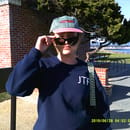The concept of the “Liberal Arts 360” is incredibly popular online, and the term has only been made more prevalent for those who actually attend small liberal arts colleges. With the rural location and small size that Kenyon College boasts, it is hard not to dish it out without having to check your surroundings first: failing not to has landed some in hot water. Sit long enough in the dining hall and you may notice heads turn in that familiar “Wait, let me just check…” way. The liberal arts 360 makes me curious about the role gossip plays in our lives, and why the liberal arts 360 is so relatable.
For the integrity of this article, I must first explain what exactly I mean when describing the term “gossip”. I do not endorse the practice of insulting, bullying, or the spreading false rumors of other individuals in their absence. Although Oxford Dictionary — and other reputable etymological sources — connote “gossip” with negativity and lies, I will be using the term as a casual and more common way to define the sharing of true and constructive information. Rather than conflating gossip with its more unkind associations, I aim instead to use it to describe the sharing of true stories or experiences with others who are not present to those an individual deems trustworthy.

Platforms like TikTok and Instagram helped popularize The liberal arts 360 as college students attending small schools shared their experiences having to double-check their surroundings before sharing gossip about someone in their community, and it has quickly become a commonly used term. When there are very few places outside of the classroom or dorm settings to converse with peers, it is easy to unknowingly share something with a nearby audience; A quick look around can save an eager-to-gossip student from ruining a connection. In some online spaces, sharing a willingness to debrief one’s experiences is looked down upon by commenters as being petty. Gossip has long been associated with spreading rumors and malicious comments behind their subject’s back. Gossip, unfortunately, is ingrained in the patriarchy as being a “woman’s” vice. Gossip is important as a potential form of information dissemination, though this is overshadowed by the widely held view of the practice as being associated with femininity, rendering it automatically negative in the public sphere. However, gossip as a form of spreading verifiable information to a necessary audience is a core part of maintaining social expectations, forming bonds with others, and can be used as a way of informing marginalized groups about who is trustworthy or not.
Upholding societal ideals, especially in small, isolated communities, is a core aspect of the gossip circle, and one that fuels the liberal arts college environment. When attending a small school in a rural area where there are few opportunities to branch outside of the academic community, news spreads fast. Do something deemed wrong and people will let you know how they feel about it. By “checking” each other and establishing norms and societal expectations, members of the community maintain the culture they want to see reflected in their environment and everyday lives. Failing to fit the established social norms will reflect badly on the individual, and others will take notice — it’s hard not to, in such an isolated group. However, this also negates the whole point of the liberal arts 360: avoiding having the individual in question hear your complaints. Therefore, holding them accountable becomes private act done without their knowledge, and they are not held accountable for the action. Rather, it is the resulting social pressures that apply to the culture of the community; Hearing that another person’s actions were deemed “wrong” will prevent it from occurring with others.



